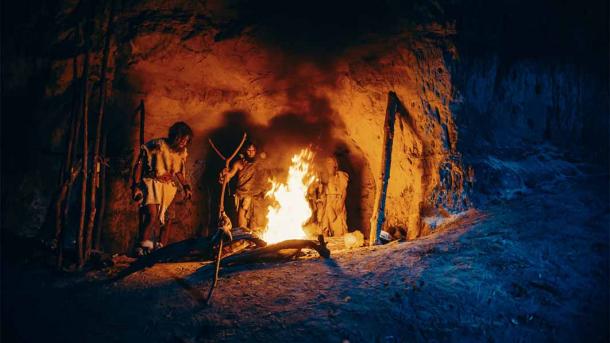
Living Close To The Bone – A Day In The Life Of A Hunter-Gatherer
At the beginning of Herodotus’ Histories, the Athenian lawgiver Solon, one of the seven sages of ancient Greece, points out to his interlocutor Croesus, King of Lydia, that if a person lives to be 70, they will experience 26,250 days – by his reckoning the length of a year is 375 days – and that not any two days will be alike. Solon’s observation is worth bearing in mind when trying to imagine the life of an average hunter-gatherer because the chances are that each day was very similar both to the one preceding and to the one following. To be sure, the constant threat of being eaten by a predator would have alleviated any boredom hunter-gatherers might have experienced, while they also had to be alert to changes in the weather, since an ice storm, say, or a fog could cause havoc. But most days would have been dominated by the endless search for food.
This is the period when hominins – that is to say, all the extinct human species who preceded and including the current homo sapiens– first separated off from gorillas, orangutans, and chimps, perhaps five million years ago. From then until around 8000 BC hunter-gathering was the dominant lifestyle for all hominins. After that date, homo sapiens, the lone surviving species, gradually began to adapt to a sedentary lifestyle by establishing communities and ceasing to lead a nomadic existence.

Hunter-gatherers harnessing fire (Gorodenkoff / Adobe Stock)
Learning to Harness Fire
History by definition is never static and even in the Palaeolithic era big changes were taking place, even though they tended to occur at a glacial pace, no pun intended. The most important development over the past one million years of humans’ history has been the harnessing of fire, a point fully realized by the Greeks, who explained fire as the gift of the Titan Prometheus. Hailed as the friend of man, Prometheus stole fire from Mount Olympus, the abode of the gods, and hid it in a fennel stalk.
It was around 800,000 BC that homo erectus, upright man, a hominin species originating in Africa which became extinct shortly before homo sapiens stepped onto the stage, began using fire to cook food and keep warm. How did they do this? Certainly not by learning how to rub two sticks together. Very likely they took advantage of a fire caused by a lightning strike, which they managed to preserve by feeding it with twigs and branches.
Like this Preview and want to read on? You can! JOIN US THERE ( with easy, instant access ) and see what you’re missing!! All Premium articles are available in full, with immediate access.
For the price of a cup of coffee, you get this and all the other great benefits at Ancient Origins Premium. And - each time you support AO Premium, you support independent thought and writing.
Dr Robert Garland obtained his M.A. in Classics from McMaster University and his Ph.D. in Ancient History from University College London. His research focuses on the social, religious, political, and cultural history of both Greece and Rome. He has written 17 books including Greek Mythology: Gods and Heroes Brought to Life
Top Image: A hunter returning with his kill (fotogurmespb / Adobe Stock)















Comments
I take issue with the statement that hunter-gatherer days were all the same. Studies of the lifestyle show hunting means a burst of activity, then high protein feeding followed by laziness, prep pf tools and supplies, cycle repeat.
Secondly the article presentation strongly implies hunting was done by males. Note the picture (probably not chosen by author) but the author uses the misleading ‘homo erectus, upright man’which should read ‘upright human’.
Thirdly the bulk of food in the hunter gather life is vegetable, nuts etc gathering. Some small game. Larger kills were/ are not constantly pursued – too exhausting and only 50% success rate anyway. So high protein bulk meals were/ are special occasions interspersed with everyday gathering, proto gardening (monitoring, some aid to good patches of veg/ fruit supplies, hence digging sticks).
Shan Morgain www.mabinogistudy.com